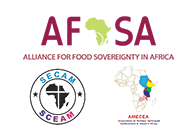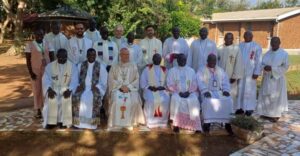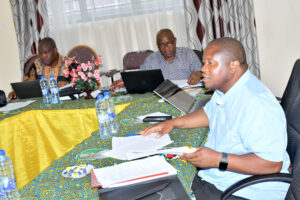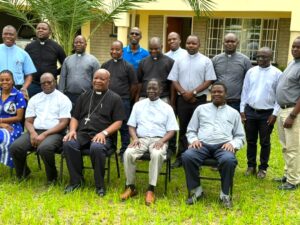ETHIOPIA: Faith and Civil Organizations Ask COP27 to Put Agroecology at the Centre of Africa’s Climate Adaptation

Sr. Jecinter Antoinette Okoth, FSSA
As the United Nations and other related organizations and agencies look forward to the upcoming 27th Conference of the Parties (COP 27) slated for 7th-18th November, 2022, in Sharm el-Sheikh, Egypt, some Faith and civil organizations have shared their concerns advocating that Agroecology be at the Centre of Africa’s Climate Adaptation.
The Alliance for Food Sovereignty in Africa (AFSA) and other Religious groups including the Symposium of Episcopal Conferences in Africa and Madagascar (SECAM) and the Association of Member Episcopal Conferences in Eastern Africa (AMECEA) in their recent meeting in Addis Ababa from 19th-21st September, discussed on Africa’s roadmap to adaptation through agroecology and called members of COP27 and beyond to act.
“We demand that COP27 put agroecology at the centre of Africa’s climate adaptation, creating resilience for Africa’s small-scale farmers, fishers, pastoralists, indigenous communities and their food systems,” reads part of a statement published by AFSA Wednesday, September 28.
In their appeal to COP 27 to prioritize agroecology, the participants who attended the three day meeting asked the conference “to transform the agri-food system, build resilience, and enable small-scale farmers, pastoralists and fishers to adapt to climate change and include agroecology in the UNFCCC (United Nations Framework Convention on Climate Change) climate negotiations.”
From the Addis Ababa meeting, officials of the various organizations acknowledged the effect of climate emergency on Africa as they bemoan the lack of access to climate finances.
As the concerned bodies call upon the conference to put small-scale farmers at the centre of adaptation, they suggest that the conference should “meaningfully engage small-scale food producers and indigenous communities, including women and youth, in the cop27 negotiations and beyond.”
They continued in their message, COP27 should, “Reject false solutions that threaten land, seeds and breeds and increase reliance on global agrochemical corporations.
According to the Faith and civil organizations “Africa is suffering the effects of the climate emergency every day. Rising temperatures, floods, storms, droughts and depleted lands impact small-scale food producers across Africa first and worst,” reads the collective message adding that, “Forced to adapt to sustain livelihoods and feed families, we are met with negligible support or access to climate finance.”
Even though Africa has great potential, rich cultural diversity, natural resources and creative young people, the concerned bodies narrated, “Yet African agriculture is plagued by under-investment and policy gaps that prevent access to productive capital and land.”
“We need a radical and just transition away from industrial agriculture, corporate monopolies, and false climate solutions – toward food sovereignty and agroecology,” they said.
In their Wednesday statement, the participants during the meeting asked members of COP 27 to direct climate finance to agroecology noting that, “The time is now for an appropriate and deliberate increase in financing for small-scale farmers, fishers, pastoralists, and indigenous communities to deliver sustainable food systems through agroecology.”
As a way forward, the Religious and civil organizations suggested that, “Uniting generations of indigenous knowledge, farmer-driven and science-based innovation, and an ecosystem’s natural processes, agro ecological food systems can adapt to the climate crisis and even help solve it.”
According to them, “Farmers, pastoralists, fisher folk, indigenous peoples and local communities use agroecology to steward their land sustainably, produce nourishing food that celebrates cultural heritage, and strengthen local markets and economies.”
Additionally, they said, “By embedding diversity and resilience, agroecology provides the ability to absorb carbon and adapt to the existential threat of climate change” hence “Africa can lead the world in the transition to sustainable food systems through agroecology.”


